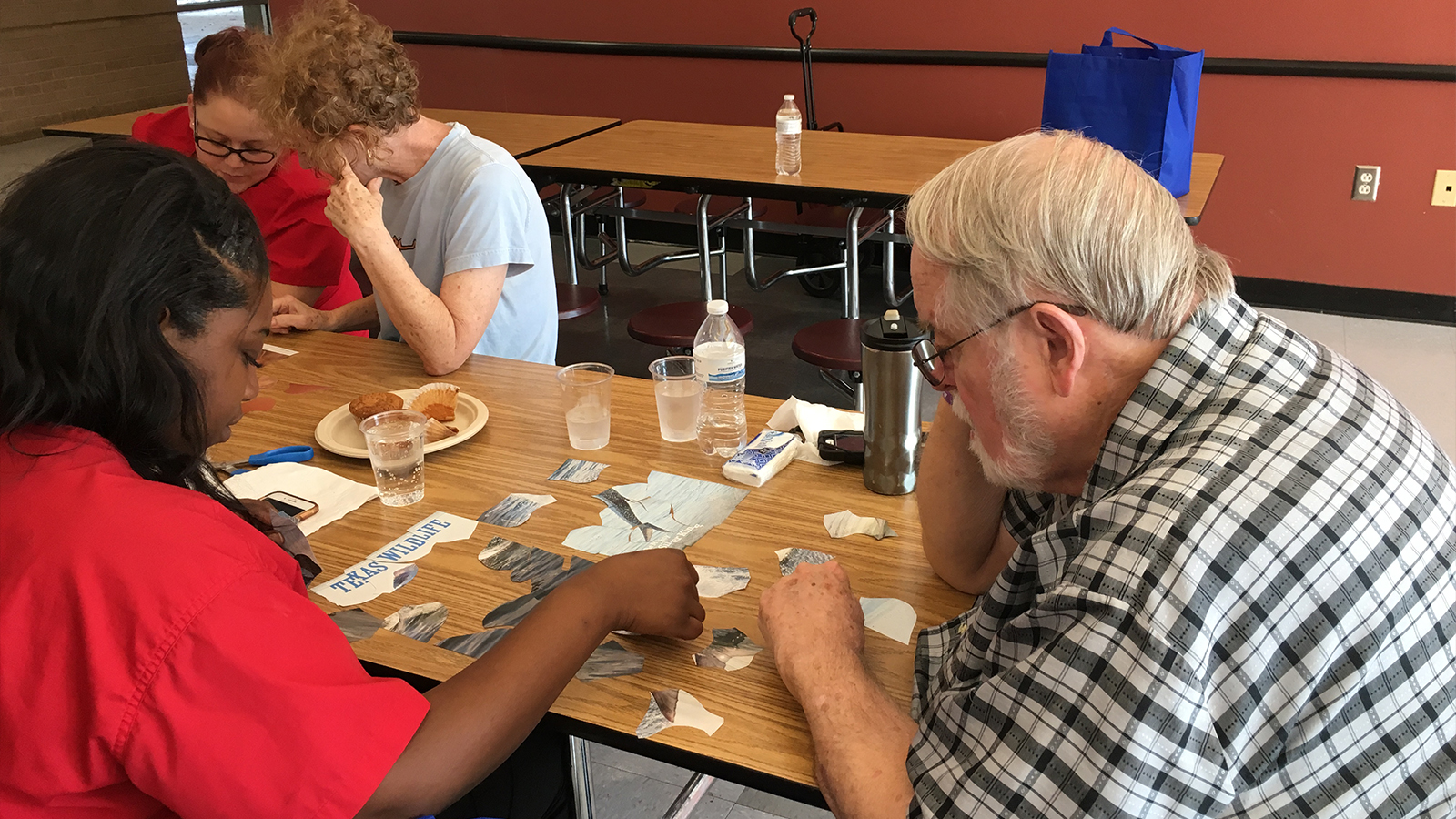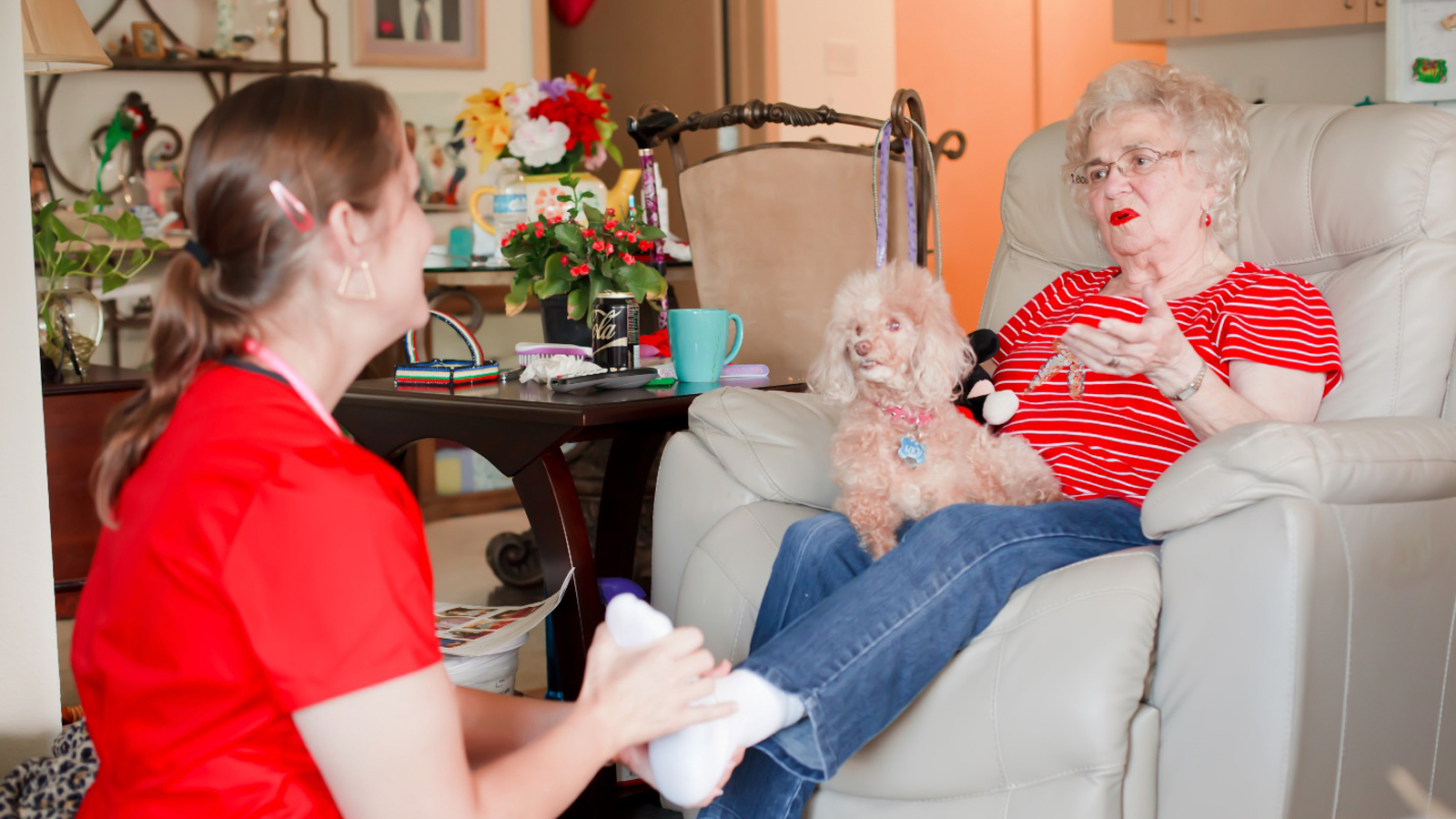What Are The Different Types of Companion Care Services Available?
Mar
24
2025
As aging occurs, understanding the various in-home companion care services becomes critical. Companion care is a type of home care that provides non-medical support to seniors or individuals with disabilities. It focuses on emotional support and social interaction. These services are customized to fit each person’s needs, ensuring they receive the care and companionship necessary to maintain their quality of life.
Companion care services are often offered by local organizations or independent contractors, like You’re First Home Care. These caregivers are trained to offer a broad range of support. This includes engaging in conversation, participating in hobbies, assisting with light housekeeping, and meal preparation. By exploring the different types of companion care services, you can make an informed choice about the best care option for yourself or your loved one.
Studies show that nearly 25% of adults aged 65 and older experience social isolation. This can lead to serious physical and mental health issues. Companion care services can help with this by providing regular social interaction and emotional support to help with senior care needs. Seniors receiving companion care often report a 25% improvement in their overall quality of life.
Key Takeaways
- Companion care services offer non-medical assistance, focusing on emotional support and socialization.
- Services can be tailored to meet the unique needs of each individual.
- Caregivers are trained to provide a wide range of support, from conversation to light housekeeping.
- Nearly 25% of adults aged 65 and older experience social isolation, which companion care can help alleviate.
- Seniors receiving companion care often report a 25% improvement in their overall quality of life.
Understanding Companion Care
Companion care is a non-medical service that provides social support and daily assistance to older adults or those needing extra help. It’s delivered at home, helping them stay independent and maintain a good quality of life.
Definition of Companion Care
Companion care offers social interaction, support with daily tasks, and ensures the safety of the care recipient. It differs from personal care, which includes bathing, dressing, and managing medication. Companion care mainly focuses on companionship and non-medical assistance.

How Companion Care Services Work
Companion care services are customized to fit each individual’s needs. A care plan is created based on the recipient’s requirements, preferences, and goals. Companions visit regularly, with the frequency depending on the support needed.
During these visits, companions engage in various activities. They provide social interaction, assist with light housekeeping, and help with meal preparation. They also accompany the care recipient on errands, offer emotional support, and monitor their safety.
The cost of companion care varies based on location, hours needed, and services provided.
Types of Companion Care Services
Companion care services provide non-medical assistance to support seniors in maintaining their independence and quality of life. These services are customized to meet the unique needs and preferences of each senior. They offer social support, help with daily activities, emotional support, and ensure safety. Let’s dive into the different types of companion care services available.

Social Support and Companionship
Companion caregivers play a key role in providing social support and companionship. They engage in conversations, play games, and participate in activities with seniors. This helps combat loneliness and isolation. Research indicates that seniors who engage in social activities have a 50% lower risk of cognitive decline.
Companion caregivers also facilitate social interactions and encourage regular communication through technology. This helps combat feelings of isolation and loneliness in older adults.
Assistance with Activities of Daily Living (ADLs)
Companion care services include assistance with activities of daily living (ADLs) like light housekeeping, grocery shopping, and transportation. They help with meal preparation, ensuring seniors maintain a healthy diet. Transportation assistance is vital, as it improves mental health by 40% for seniors who visit social events or medical appointments.
Emotional Support and Mental Well-being
Companion caregivers also offer emotional support and encouragement to seniors. They provide a listening ear and a comforting presence, helping to reduce loneliness and depression. Studies show that seniors receiving companion care have a 30% lower likelihood of experiencing depression compared to isolated seniors.
Safety Supervision and Monitoring
Companion care services include safety supervision and monitoring at home. Caregivers ensure seniors are safe in their environment, reducing the risk of falls and accidents. Live-in companion care services involve 24-hour shifts, catering to the needs of seniors with chronic conditions requiring constant attention.
Benefits of Companion Care Services
Companion care services bring numerous benefits to seniors and individuals with disabilities. They offer social support, help with daily tasks, and emotional care. This reduces loneliness and social isolation, vital for mental and physical health.
Through social interaction and conversation, companion care combats loneliness. It shows the value of companionship in boosting quality of life. These services also enhance life by supporting hobbies and activities, leading to mental stimulation and enjoyment. This can result in higher client satisfaction rates.
Reduced Loneliness and Social Isolation
Companion care greatly reduces feelings of isolation, essential for mental and physical health. There’s a high demand for emotional support among seniors, and these services meet that need. Regular social interaction and engaging activities improve mental well-being and lower depression and cognitive decline risks.
Improved Quality of Life
Companion care services improve seniors’ lives by helping with daily tasks, hobbies, and activities. This support allows seniors to stay independent and at home. About 80% of seniors prefer to age in place, and companion care makes this possible by ensuring a safe, comfortable environment.
Peace of Mind for Families
Families often feel stressed and worried when caring for their loved ones. Companion care services offer peace of mind with reliable, trustworthy support. Studies show families experience a 60% stress reduction with a dependable companion. Respite care also reduces caregiver burnout, affecting about 40% of family caregivers.
Choosing the Right Companion Care Services
When selecting companion care services, it’s vital to consider your loved one’s unique needs and preferences. Look for reputable home care agencies that craft personalized care plans. Ensure these plans are tailored to meet individual requirements. It’s also important to find providers with background-checked and insured caregivers. These caregivers should have the necessary qualifications and experience to deliver top-notch care.
Companion care costs can vary based on the level of care and services provided. Hourly rates typically range from $20 to $30. Companion care is generally less expensive than in-home health care and residential senior living. Yet, understanding the total costs, including any hidden fees, is essential. Many agencies offer payment options and assistance programs to help families manage care costs.
When searching for qualified caregivers, prioritize compatibility with your loved one. Studies indicate that 70% of successful caregiving relationships are built on strong personal connections. Seek caregivers with a high compassion quotient, as empathy and understanding are critical in caregiving. Reviews and references are also valuable, with 78% of clients relying on online reviews to choose providers.
Flexibility in care plans is another critical factor, as individual needs can change over time. Opt for a provider that can adjust care plans as needed. In Delaware, the demand for home care services is expected to increase by 25% in the next decade. This growth highlights the need for personalized companion care as the population ages.
Conclusion
Companion care services are vital for senior well-being, ensuring they maintain independence and quality of life. They assist with daily tasks, foster social interaction, and offer emotional support. This makes a significant impact on seniors’ lives. Studies show that social connection is key to a long, healthy life. Companion care combats loneliness and isolation’s negative effects.
Personalized care plans cater to each client’s unique needs, providing flexible support. This support ranges from a few hours a day to around-the-clock care. Companion care benefits seniors and gives family caregivers much-needed respite. It alleviates feelings of being overwhelmed and exhausted. With millions of families stressed by caregiving, companion care’s importance is clear.
If you or a loved one needs companion care, consider You’re First Home Care in Houston, Texas. This award-winning home care company has a dedicated team. They undergo thorough background checks and rigorous training for client safety and well-being. You’re First Home Care aims to empower older adults to live with dignity and enhance their quality of life through personalized care.
Frequently Asked Questions About Different Companion Care Services Available
What is companion care?
Companion care is a type of home care that focuses on non-medical services. It aims to provide emotional support and social interaction. This helps older adults or those with disabilities maintain their independence and quality of life at home.
How does companion care differ from personal care?
Companion care and personal care share some similarities but have key differences. Personal care aides handle tasks like bathing and dressing. In contrast, companion care emphasizes social interaction, emotional support, and assistance with light tasks.
What types of services do companion caregivers provide?
Companion caregivers offer a variety of services based on individual needs. They provide social support through conversations and activities. They also assist with daily tasks, offer emotional support, and monitor safety at home.
What are the benefits of companion care services for seniors?
Companion care services significantly benefit seniors by reducing loneliness and improving mental health. They enhance quality of life and give families peace of mind. Regular interaction and assistance with daily tasks help seniors stay independent at home.
How do I choose the right companion care services for my loved one?
Choosing the right companion care involves considering your loved one’s needs and preferences. Look for reputable agencies with personalized care plans and background-checked caregivers. Compare costs and read reviews to make an informed decision.
How much does companion care cost?
Companion care costs vary based on location, hours needed, and services provided. It’s generally less expensive than in-home health care or senior living. For an accurate estimate, contact local home care agencies.
Reach Out






